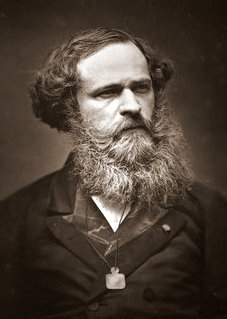A Quote by Thomas Piketty
Once constituted, capital reproduces itself faster than output increases. The past devours the future.
Related Quotes
Regular crises perpetuate the past by reinvigorating cycles which started long ago. In contrast, (capital-C) Crises are the past's death knell. They function like laboratories in which the future is incubated. They have given us agriculture and the industrial revolution, technology and the labour contract, killer germs and antibiotics. Once they strike, the past ceases to be a reliable predictor of the future and a brave new world is born.
Population regulates itself by the funds which are to employ it, and therefore always increases or diminishes with the increase or the diminution of capital. Every reduction of capital is therefore necessarily followed by a less effective demand for corn, by a fall in price, and by a diminished cultivation.
We're not the Faster-than-the-Speed-of-Light Generation anymore. We're not even the Next-New-Thing Generation. We're the Soon-to-Be-Obsolete Kids, and we've crowded in here to hide from the future and the past. We know what's up - the future looms straight ahead like a black wrought-iron gate and the past is charging after us like a badass Doberman, only this one doesn't have any letup in him.
The mystery lies in the here and now. The mystery is: What is one to do with oneself? As you get older you begin to realize the trick time is playing, and that unless you do something about it, the passage of time is nothing but the encroachment of the horrible banality of the past on the pure future. The past devours the future like a tape recorder, converting pure possibility into banality. The present is the tape head, the mouth of time. Then where is the mystery and why bother kicking through the ashes? Because there is a clue in the past.
What type of new economical system can organize this system? There is another sector in our life, that we rely on every single day, that are absolutely essential: the social commons, the social economy. It is all the activity we engage in to create social capital. It doesn't create capital market. Social commons is growing faster than the market place. It is growing faster than the market place. The social commons include any activity that is deeply social and collaborative.




































